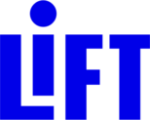Spanish. Beaner. Pocha. Immigrant. Wetback. Minority. Illegal alien. Hispanic. Latina. Mexican-American. All labels given to me by others. If you ask me, I am Mexican born, Chicana by choice! Labels don’t define me. Family values and traditions define me. Through my journey in defining my identity in this country, I recognize that I would not have reached my dreams without the support of many. I am aware that I stand on the shoulders of my ancestors, mentors and past generations that fought so that I could have a chance to live in safe and affordable neighborhoods, have the opportunity to go to college, choose my career and live free from racism, discrimination, xenophobia and misogyny.
I was raised to work hard, practice gratitude and show love for humanity. “Dale gracias a Dios y a este pais por darte la oportunidad de vivir mejor que nosotros,” (Give thanks to God and this country for the opportunity to live better than we did.”), said my mom when I left home to go to college. A true reflection of her faith, and her belief in the country that allowed me opportunities to reach my dreams. However, those dreams did not come easy. It took sacrifice – and the support of those around me – to make my dreams come true.
When I was two years old, my parents decided to move us to “El Norte” (North). My parents took risks when they crossed a border through the desert into California leaving behind our home, family, work and friends. All this with the hope that we would have a chance to live a better life. Just like all the parents that walk through LIFT’s doors, my parents were willing to sacrifice everything they had if it meant their children could have a brighter future.
Growing up, I saw how my parents feared deportation and the risk of separating us because my two youngest siblings were U.S. born. This fear affected our ability to ask for help. We experienced poverty in all its forms. Asking for public assistance was not an option because there were no agencies or county officials willing to translate the English-only documents. At that time, my parents did not allow themselves to dream. They were happy and grateful that their children were healthy; had employment and remained together. They knew that going to college would not be a possibility because we had two major challenges – we were poor and undocumented. “We came to this country to work – college is a dream that doesn’t belong to us,” my dad would say growing up. Instead, my parents focused on raising us to be “personas de bien.” This meant that we needed to be silent, invisible and not engage in any activity that would call attention to officials. It was the “Simpson Mazzoli Act” that granted us the label of “illegal alien” and allowed me privileges like the opportunity to go to college and work in this country. An opportunity that I don’t take for granted. If it wasn’t for the advocacy efforts by those that believed that immigrants deserved a chance at the “American Dream,” I would not be working at LIFT.
I continue to live in a world in which I am not considered “American” or “Mexican,” enough. I am a Dreamer, who dreamed of going to college so that I could learn how to help my parents and community. I owe it to those behind me that demanded better living and working conditions, protested to have a better education and eliminate borders that separated families. In honor of the 50th Anniversary of the East L.A. High School Walkouts and my mentor Sal Castro, I stand stronger than ever, fighting the good fight while positively influencing the lives of others. I will not stop until children that look and sound like me no longer experience what I have endured. I owe it to my 15 and two-year-old daughters to ensure that they don’t experience the same fears simply because of their gender, last name and color of their skin. I owe it to my parents who were labeled as criminals for crossing a border in hopes of a better future for us. I owe it to all Dreamers for their courage to risk it all for their dreams to become a reality.
For the month of March 2018, LIFT published a series of stories that highlighted the power of parents, specifically those of immigrant families, as change agents. We asked our staff:
- As a parent, how do you hope to change your children’s life for the better? How does that compare to aspirations of immigrant parents?
- How did your parent change your life for the better? What if they hadn’t been there for you – where would you be? How does that compare to the risks that immigrant parents and children face now?
- Share a story of a parent who inspires you and is changing lives for the better
Read the complete series:
Brian’s Story – Araceli’s Story – Frank’s Story – Sang’s Story
